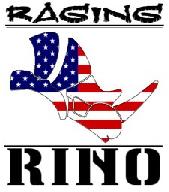September 28, 2005
TONIGHT'S REQUIRED READING
We are now a month removed from the debacle that was Hurricane Katrina. I remember being struck by the suggestion of many well-paid talking heads that the President should ignore the law (or bend the rules, or some such other nonsense), invoke the Insurrection Act and declare martial law in New Orleans. The facts on the ground did not support invocation of the Act then and even less now we know that much of the news reports of the time turned out to be rumor and hype. All the more reason to reflect the exercise of presidential power to deal with a national crisis.
Tonight's reading is Youngstown Sheet & Tube v. Sawyer, better known as The Steel Seizure Case, reprinted in full here. President Truman was confronted with an imminent nationwide steel strike at the height of the Korean War. Hours before the strike deadline he seized all of the steel mills by executive order without any enabling legislation from Congress, relying solely on the fact he was Commander in Chief. An Ohio steel mill challenged the seizure and the case wound up in very short order in the Supreme Court.
Justice Robert H. Jackson's concurring opinion cogently set out the analysis for determining if the use of executive power in any particular instance is lawful:
1. When the President acts pursuant to an express or implied authorization of Congress, his authority is at its maximum, for it includes all that he possesses in his own right plus all that Congress can delegate. In these circumstances, and in these only, may he be said to personify the federal sovereignty. If his act is held unconstitutional under these circumstances, it usually means that the Federal Government as an undivided whole lacks power. A seizure executed by the President pursuant to an Act of Congress would be supported by the strongest of presumptions and the widest latitude of judicial interpretation, and the burden of persuasion would rest heavily upon any who might attack it.
2. When the President acts in absence of either a congressional grant or denial of authority, he can only rely upon his own independent powers, but there is a zone of twilight in which he and Congress may have concurrent authority, or in which its distribution is uncertain. Therefore, congressional inertia, indifference or quiescence may sometimes, at least as a practical matter, enable, if not invite, measures on independent presidential responsibility. In this area, any actual test of power is likely to depend on the imperatives of events and contemporary imponderables rather than on abstract theories of law.
3. When the President takes measures incompatible with the expressed or implied will of Congress, his power is at its lowest ebb, for then he can rely only upon his own constitutional powers minus any constitutional powers of Congress over the matter. Courts can sustain exclusive Presidential control in such a case only be disabling the Congress from acting upon the subject. Presidential claim to a power at once so conclusive and preclusive must be scrutinized with caution, for what is at stake is the equilibrium established by our constitutional system.
Into which of these classifications does this executive seizure of the steel industry fit? It is eliminated from the first by admission, for it is conceded that no congressional authorization exists for this seizure. That takes away also the support of the many precedents and declarations which were made in relation, and must be confined, to this category.
Can it then be defended under flexible tests available to the second category? It seems clearly eliminated from that class because Congress has not left seizure of private property an open field but has covered it by three statutory policies inconsistent with this seizure. In choosing a different and inconsistent way of his own, the President cannot claim that it is necessitated or invited by failure of Congress to legislate.
This leaves the current seizure to be justified only by the severe tests under the third grouping, where it can be supported only by any remainder of executive power after subtraction of such powers as Congress may have over the subject. In short, we can sustain the President only by holding that seizure of such strike-bound industries is within his domain and beyond control by Congress. . .
The Court struck down the executive order as lacking any basis in law, the strike went on, and was eventually settled between labor and management.
The lessons the case has for us on the exercise of executive power last to this day. Use of the Insurrection Act to declare martial law to be administered by federal troops would have been just as illigitimite as Truman's seizure of the steel mills--it would have been a fig leaf to cover the naked use of executive power without law. (John Roberts made reference to The Steel Seizure Case in his confirmation hearings in response to an idiotic question about the president being "above the law" although I would be surprised if any of the senators picked up on the reference.)
Posted by LMC at September 28, 2005 09:25 PM | TrackBack





